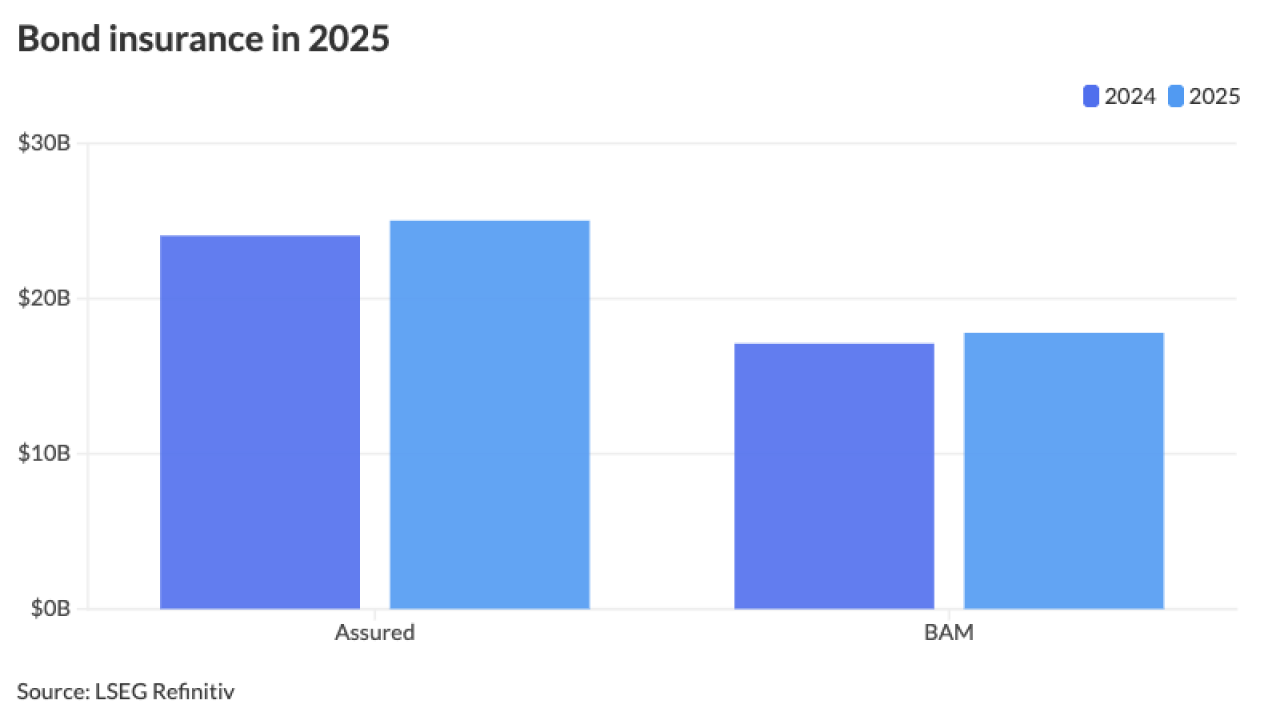Almost one month after
Gov. Kathy Hochul announced a "conceptual agreement" with the

Based on the state's preliminary assessment of the negotiated changes to the $227 billion
Both the state Senate and Assembly are expected to pass bills shortly to enact the budget. Democrats dominate both the executive and legislative branches of the state government.
"I am pleased to have reached an agreement with Speaker [Carl] Heastie and Leader [Andrea] Stewart-Cousins on a transformative budget that improves public safety, transforms our mental health care system, protects our climate and invests in our children's future," Hochul said in a statement.
Hochul said the budget saves the state-run MTA from falling off a "fiscal cliff" by securing its long-term stability by raising the payroll mobility tax for businesses in New York City to 0.6% from 0.34%, which is estimated to raise around $1.1 billion. Additionally the state will contribute $300 million in one-time aid while the city will contribute $165 million for paratransit services funding. About $65 million has been allocated to reduce proposed MTA fare increase and expanding service on the subway while launching a pilot program providing five free bus routes.
MTA Chair Janno Lieber was satisfied with the way things turned out for the transit agency this year.
"We are incredibly grateful to the Legislature, along with the governor, for this effort to assure the MTA's long-term financial stability, and we look forward to working with them as we deliver essential mass transit service for New Yorkers," he said in a statement Thursday night.
However, no mention was made of the congestion pricing plan that had been debated in Albany, which would provide the MTA with an additional revenue stream.
"Four weeks late, Gov. Hochul announced the state's leaders have agreed to a framework for the fiscal year 2024 budget, which will be finalized and enacted over the next few days," Citizens Budget Commission President Andrew Rein tweeted.
"Unfortunately, the announcement was made without providing even the most simple financial information needed to understand the budget's basics, such as how much new recurring spending will be added and how much it will increase the state's already massive structural budget gap," he said.
And while Hochul said her reserve increase didn't make the final cut, Rein said, "she didn't mention any effort to restrain spending growth so that it can be supported by recurring receipts; this is discouraging."
It is important for New York to stabilize its finances, he said. "The state should publish basic financial plan tables soon to provide New Yorkers the information they need to understand how the state plans to spend and afford their $229 billion."
Issuers across New York State ranked first in the nation for municipal bond issuance in 2022, up from number three in 2021, selling more than $49.39 billion of debt last year, according to Refinitiv.
The state's general obligation bonds are rated Aa1 by Moody's Investors Service and AA-plus by S&P Global Ratings, Fitch Ratings and Kroll Bond Rating Agency.
The budget includes $1.1 billion for New York City to deal with its asylum-seeker crisis, it was reported. Most of the funds will go toward covering the city's costs for shelters and emergency response centers. Funds will also go to health care costs for migrants.
The budget also aims to improve public safety by giving judges wider discretion to set bail for serious crimes.
It invests $347 million in evidence-based gun violence prevention initiatives, provides $170 million to support implementation of discovery reform for prosecutors and defenders, sets aside $92 million in aid for prosecution and defense funding and provides over $66 million to increase the number of state police academy-trained troopers.
Other spending in the budget includes funds for building infrastructure and capital projects, including $1.7 billion for a Department of Health research laboratory, $2.4 billion for transformation, maintenance and preservation projects at SUNY and CUNY campuses across the state, $446 million for Phase Three of the Hunts Point interstate access improvement project, $105 million to upgrade the state emergency operations center, and $51 million for Hudson Valley bridge rehabilitation and replacement.
Health initiatives also figured prominently in the budget.





